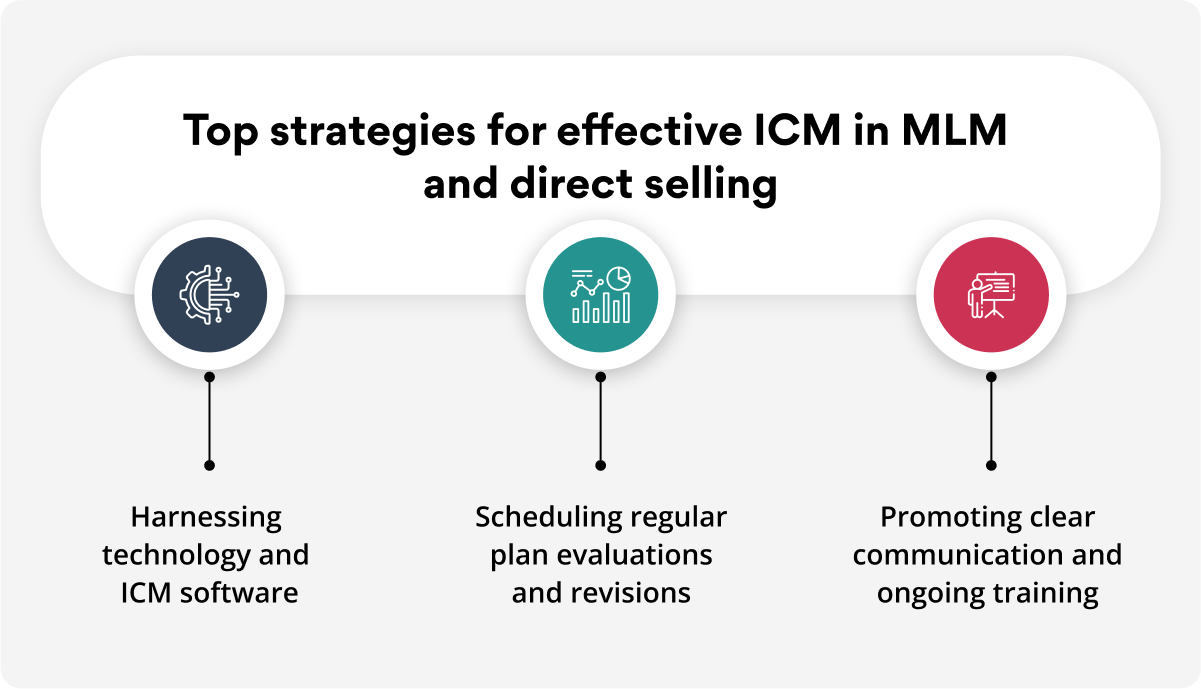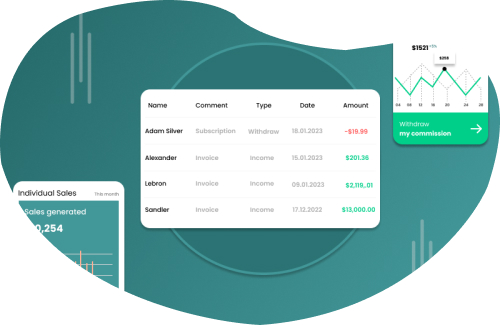As the MLM and direct selling landscape moves at lightning speed, the role of Incentive Compensation Management (ICM) has never been more crucial and critical. When it comes to sales growth, distributor motivation and long-term success, ICM is the key to unlocking it all. Mastering ICM has evolved from a nice-to-have to a must for businesses wanting to stand out in a highly competitive game and with changed consumer behaviors.
Needless to say, Epixel is quite sure that today's market is not about following the race but overtaking it. The software brings along data-backed tools that empowers companies to fine-tune commission plans, ensure transparency and align incentives with performance. It’s all about making sure that every commission earned is a step toward bigger success.
Understanding the basics of Incentive Compensation Management
ICM stands for Incentive Compensation Management. It is a systematic process of designing, implementing and managing compensation plans to reward sales teams and distributors as they achieve specific goals. MLM and direct selling industries benefit uniquely from ICM systems. In this environment, success is highly dependent on the collective efforts of a distributed salesforce, where their personal accomplishments aligns well with the company’s broader goals.
ICM covers the whole range including commission structures, bonuses, performance metrics and rewards programs. When MLM and direct selling companies manage these elements well, they can motivate distributors, boost sales and build a culture of excellence and accountability.
Key components of ICM in MLM and direct selling
Effective ICM ties earnings to performance, rewarding distributor success at every level. The system plays a very critical role in defining not only compensation structure but also growth trajectory of MLM and direct selling organization. Let’s explore the key components of an effective ICM in MLM and direct selling to understand how they work together to boost both individual and organizational performance.

Commission structures
The commission structure is central to ICM, as it decides how sales are rewarded. The two primary sources of commission in MLM are personal sales and the sales made by those within an individual’s downline. Making sure the structure is fair, and motivating helps distributors feel like their efforts are truly valued.
Bonuses and rewards
Bonuses are a great motivator on top of regular commissions. They give distributors an extra push when they hit key targets, like reaching sales goals, signing up new distributors or launching a new product line. Bonuses can really ramp up motivation and performance.
Performance metrics
The success of ICM depends on well-defined performance metrics that objectively measure distributor contributions. Sales volume, recruitment rates, customer retention rates and product promotion efficacy are common ones. These metrics help create a simple, transparent way to assess performance and decide on compensation.
Performance tracking and analytics
Advanced tracking tools and analytics are a must for monitoring distributor performance. They give companies the data needed to adjust compensation plans, recognize high achievers and deal with underperformance early on.
Benefits of effective ICM
ICM brings valuable benefits to MLM and direct selling industries. The top ones being improved sales performance, enhanced distributor performance and better alignment with business goals. Below are the key benefits in more detail.
Increased sales performance
A well-structured ICM system incentivizes distributors to maximize their sales efforts, helping to grow revenue and penetrate the market. Tying compensation to performance keeps sales growth right on track.
Enhanced distributor retention
Fair and transparent compensation plans build loyalty among distributors. When people feel that the efforts they put forth are being compensated fairly, they are more likely to continue on side with the company. In the end, turnover is cut down, and a robust, healthy salesforce emerges.
Alignment with company goals
ICM aligns distributor activities with broader business objectives. This way, companies can tailor compensation plans to support desired behaviors—like upselling, cross-selling or customer acquisition. A highly effective way to guide the sales force toward strategic priorities.
Challenges in implementing ICM
The implementation of ICM in MLM and direct selling companies is a complex undertaking. Though the system offers a structured approach to rewarding distributors and sales representatives, numerous problems can arise during its implementation stage. These challenges can hinder the effectiveness of the ICM, impact the overall performance of the organization and potentially lead to dissatisfaction among the sales force.
Complexity of compensation plans
Crafting compensation plans that can motivate and stay within budget is a real challenge. In MLM structures, earnings come from multiple downline levels. The goal here is to find a delicate balance between simplicity and fairness.
Transparency and fairness
Being transparent about how compensation is calculated and distributed helps keep trust strong. Distributors must clearly know how their performance or efforts translate into earnings, which adds to ongoing motivation and also minimizes the risk of disputes down the line.
Adapting to market changes
The direct selling and MLM markets are constantly in flux due to changing customer preferences and increasing competitive pressures. ICM systems should, therefore, be responsive to such shifting demands. When the system lets companies adjust its compensation plan easily, this newfound flexibility will allow businesses to be competitive and in step with the current trends.
Best practices for ICM in MLM and direct selling
A well-designed and effective ICM promises success and sustainability. Sticking to a few key best practices can help companies get the most out of their ICM, motivating distributors, increasing sales and ensuring long-term success. This section goes on to explore key best practices that can help businesses create a robust and rewarding ICM.

Leveraging technology and ICM software
Advanced ICM software is a real time-saver when it comes to managing compensation plans. It simplifies commission calculations, tracks performance and provides helpful insights into the data. This means less time spent on administrative burdens and more time for business growth.
Regular plan reviews and updates
Periodic evaluation of compensation plans is important to make them remain effective and competitive. Analyzing the performance data and distributor feedback helps companies know which aspects need improvement and how to make the adjustments in order to keep the motivation high but at the same time ensure fairness.
Clear communication and training
Transparent communication about compensation and ongoing training helps distributors understand how to maximize their earning potential. Providing easy-to-understand guidelines and resources fosters transparency and gives them the knowledge to thrive.
Discover how we build resilient businesses with advanced MLM functionalities
Win big with a winning ICM
Incentive Compensation Management is the foundation of successful businesses in MLM and direct selling. A well-thought-out compensation plan that focus on rewarding performance will boost sales, retain top distributors and support achieving goals. Adopting cutting-edge ICM technologies, following the best practices and staying committed to fairness and transparency will help businesses outperform their competitors.
Investing in robust ICM strategies is not a tactical decision; it's more of a strategic need. As the industry continues to grow, those who master the art of incentive compensation will surely lead the way. This gives rise to a motivated and high-performing salesforce poised for sustained growth and success.









Leave your comment
Fill up and remark your valuable comment.